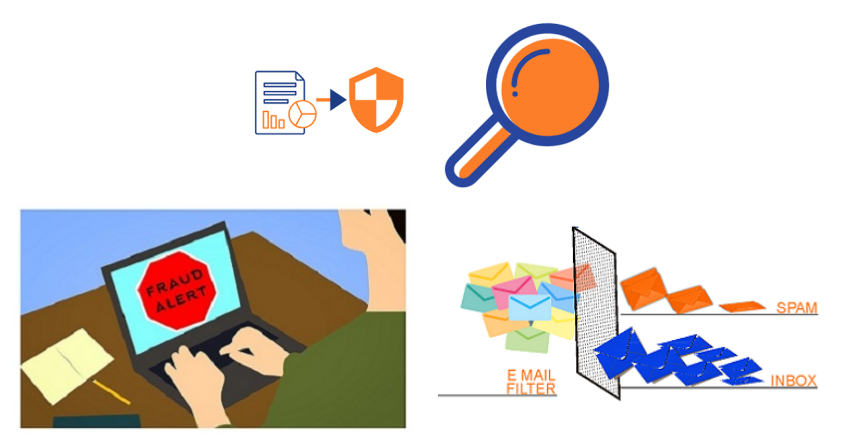Many people imagine AI as robots, devices and machines that work automatically. It’s been a while that AI has become a part of our daily lives, and its use has become evident. A research by MarketsandMarkets predicts that the Artificial Intelligence market that was valued around $21.45 billion in 2018 is now about to grow by $190.61 billion by 2025 with a CAGR of 36.62%. It also predicted that big data, virtual assistants and cloud-based applications and services would be the primary drivers of the AI market.
 When we see this kind of increase in the use of AI applications and services, there arises a question of security. Today a consumer gets what he/she wants at lightning speed, and digitization has made everything come to his doorstep. Businesses are moving towards offering services and products that are fast-paced, automatic and can learn on their own. Last few years, we have observed several data breaches, identity thefts, and loss of money that has affected both individuals and businesses equally. Cyberattacks have been ever-increasing, and companies are trying their best to safeguard data in every single way possible.
When we see this kind of increase in the use of AI applications and services, there arises a question of security. Today a consumer gets what he/she wants at lightning speed, and digitization has made everything come to his doorstep. Businesses are moving towards offering services and products that are fast-paced, automatic and can learn on their own. Last few years, we have observed several data breaches, identity thefts, and loss of money that has affected both individuals and businesses equally. Cyberattacks have been ever-increasing, and companies are trying their best to safeguard data in every single way possible.
In a study, Gartner predicted USD 137.4 billion was spent on information security in 2019, which is expected to increase to USD 175.5 billion by 2023 focusing on areas like cloud security, data security and infrastructure protection.
Use of AI to enhance online security:
AI helps in detecting new threats and can be used to update security databases. It analyses different logs from various sources and helps in detecting possible threats. AI can also possibly detect malware and spyware trends occurring in data across different channels. Thus, AI helps in identifying the threat much before it occurs so that safety measures can be taken well in advance. There are several companies in the industry that are experimenting and enabling AI to learn to detect viruses and malwares so that AI can later run pattern recognition in the existing software. AI can also be trained to detect the smallest of the ransomware that can possibly become a big threat later. It has more accuracy in detecting threats than what traditional systems or any human eye can find.
As companies at large have been victims of data breaches, they have started using biometric logins that are more secured and accurate. These include scanning fingerprints, faces, retina and palms. Smartphones are the best example of this. As passwords are more vulnerable to data thefts and important information like personal details, bank credentials, and other data can be easily compromised, AI-based biometric logins can be a positive sign for data security as they identify people based on specific characteristics that are unique from others.
Businesses or companies usually use traditional authentication methods that aren’t agile enough. AI can be used for multi-factor authentication to provide access to multiple users. AI can be used to create a more dynamic and real-time authentication framework that can modify access privileges depending upon the user and where he is accessing from. Multi-factor authentication gathers the specific user information, analyses it and then assigns the access privileges accordingly.
Everyone receives a minimum of 10 phishing emails in a day. AI and machine learning tools can detect 10000+ active phishing sources and react to them much faster than humans can do. AI helps in tracking phishing mails across the globe, and it is not limited to any specific geographical area. It can also detect fake websites and differentiate with the original ones.
AI helps in determining unusual activity occurring on individual systems as AI tools continuously scan through all the data and keep a track on abnormal activities. AI tools also constantly monitor unauthorized access and logins and determine whether it’s a threat or not. Machine Learning will allow AI to learn and determine what normal activity is and what abnormal activity is, thus, AI will better itself in detecting smallest abnormalities that may show signs of unusual activities and create warning alerts.
AI not only helps in detecting threats but also helps in prevention by adding firewalls and automatically prevents from any human errors or coding errors in the system. AI allows us to respond to threats in a more intelligent way by understanding the breach and develop a real-time solution for the same threat.
AI has already automated and simplified processes like inventory management, supply chain and customer services and now it allows companies to dig deeper and perform more consistent investigations relating to security, thus, empowering analysts to make data-driven decisions. AI helps in streamlining and prioritizing data alert investigations and makes it more manageable. Majority companies today have adopted AI integrated tools and systems to enhance online security, but still, data breaches and security threats can’t be avoided fully. AI is in the developing stage, and several companies are trying to create more secured network and systems to protect data.

